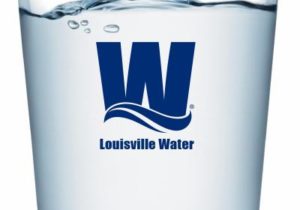There’s a lot of attention on your drinking water…and that’s okay.
Louisville Water is in the business of public health and our drinking water is high-quality and meets all regulatory standards. This week, there’s a lot of national media attention on a group of compounds, PFAS, that’s been detected in water supplies across the United States, including Louisville. At this point, based on the best-available science, we do not see this as a concern for Louisville’s drinking water. But we need the research to continue.
 PFAS is a group of compounds – all man-made – that the EPA – and lots of water utilities – are researching for regulation. While there’s been a phase out of the chemicals, they are pervasive. It’s a large family of compounds – up to 5,000, but right now the EPA is focused on a small number of the compounds, two of them are PFOA and PFOS.
PFAS is a group of compounds – all man-made – that the EPA – and lots of water utilities – are researching for regulation. While there’s been a phase out of the chemicals, they are pervasive. It’s a large family of compounds – up to 5,000, but right now the EPA is focused on a small number of the compounds, two of them are PFOA and PFOS.
PFOA and PFOS have been widely used to make carpets, clothing, fabrics for furniture, paper packaging for food and other materials. They are also used for firefighting at airfields and in industrial processes.
Currently, the EPA does not have a national standard for PFAS in drinking water. The EPA “health advisory” – based on lifetime exposure to PFOA and PFOS in drinking water – is 70 parts per trillion. Louisville Water’s research has found levels of PFOA ranging from “non-detect” to 13 parts per trillion (ppt) in 2013 and up to 5 ppt for PFOS. Keep in mind – there is no such thing as “zero” and many of the traditional water treatment methods do not entirely remove these compounds. We detected GenX in our research last summer at 26 parts per trillion but since then at much lower levels.
National media on PFAS
The Environmental Working Group (EWG) has released a report, in which they analyzed a sample of Louisville’s drinking water. The EWG is a national environmental advocacy group. Their findings were based on one sample and did not find anything that is significantly different than our own water quality sampling.
Louisville Water does over 200 tests daily on the drinking water supply. And one sample, like the one in this study, doesn’t drive standards, but the levels are similar to Louisville Water’s research. Water utilities like Louisville Water didn’t create the problem with PFAS but now we must research and identify the best way to minimize a risk to water quality.
As always, public health and the quality of your drinking water is our top priority. Ask us a question or reach out with a concern.

